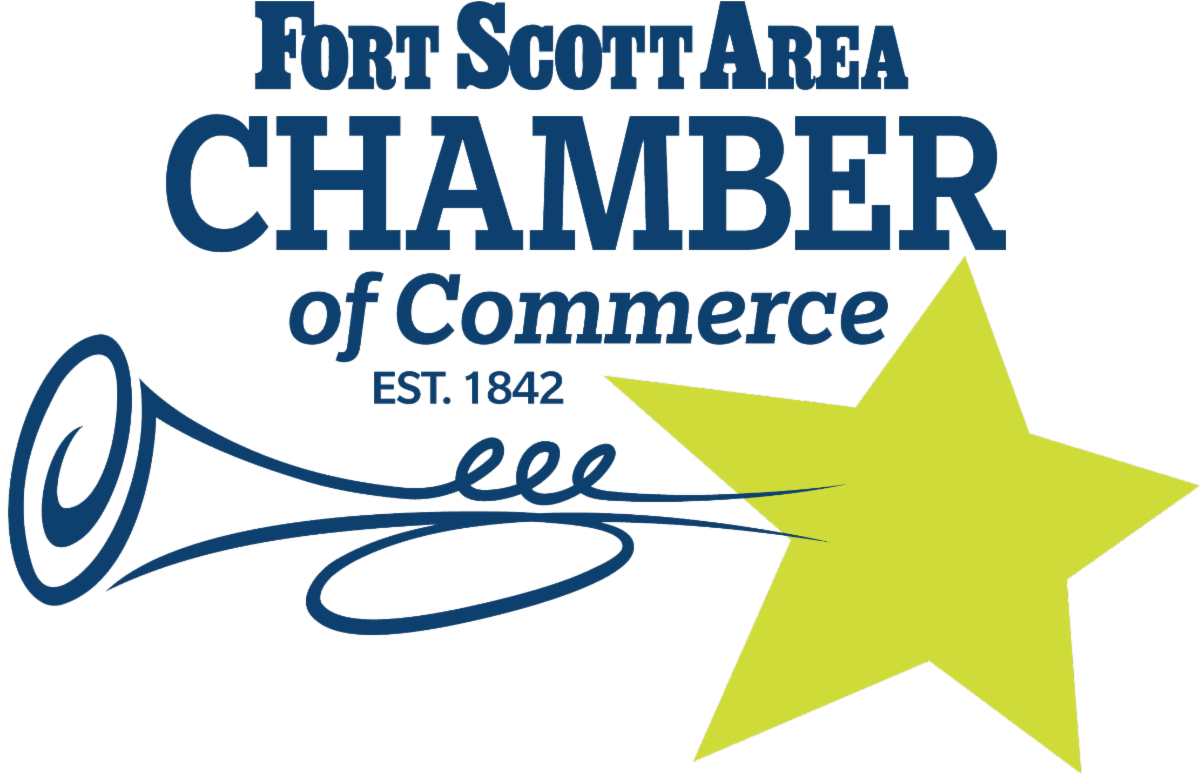
|
|
|
|
|
|
|
|
|
|
|
 |
|
|
|
A donation of $5500 toward a downtown program working to address urgent business and community needs.
A program that originated to address the urgent needs of business, childcare centers, food insecurity, and employment will continue through 2021 as a result of an anonymous donation to the Bourbon County Workforce and Entrepreneur Resource Center (BWERC).
Because of the generous donation, these critical services will continue to be provided to Bourbon County and City of Fort Scott residents and business free of charge.
The center is located in the Historic Downtown Fort Scott in the upstairs of 17 South Main Fort Scott KS.
It is a “one-stop shop” for business, employment, food, telework and distance learning needs.
Current businesses, and those looking to start a business, have a physical location to meet with a person.
Additionally, services are available for those seeking employment, developing soft skills (i.e. interviewing), or other job seeking help.
Businesses are encouraged and welcome to contact Southeast KANSASWORKS to see how they can connect with those looking for employment.
An overview of services BWERC provides Bourbon County:
• WORKERS & FAMILIES:
o Distance Learning and Telework Space
o Training & Job Seeking Assistance
o Increasing Access to Healthy Food
o Building Capacity for Local Food Assistance
• ADDRESSING CHILDCARE:
o Relief in Fulfilling Educational Requirements for Centers
o Incentives for Becoming a Legal Childcare Provider
• BUSINESS TOOLS & TECHNICAL ASSISTANCE:
o Get Businesses Online via new Websites & Social Media
o Loans & Grants
o Special COVID Programs & Resources
Background of BWERC:
Originally funded by a county SPARKS grant, the BWERC was created through a multi-partner collaboration of Bourbon County Economic Development, Fort Scott Area Chamber of Commerce, PSU Small Business Development Center (PSU SBDC), Southeast KANSASWORKS, and BAJA Investments. The Healthy Bourbon County Action Team has since joined the partnership in an effort to address the social determinants of health. The BWERC provides a location, with high speed internet, and all the needed technology for our partners to meet face-to-face or virtually with community residents and business owners.
Through the collaboration childcare centers receive relief in fulfilling educational requirements and illegal childcare is incentivized to become legal. PSU SBDC is available to
business to provide the technical assistance needed to obtain capital, develop marketing strategy, and more.
Southeast KANSASWORKS provides assistance to those seeking employment and to businesses looking for employees. The partnerships with CHC/SEK and BAJA Investments are
actively working to address health inequities and food insecurity throughout the county.
Contact information:
Jody Hoener, Economic Development Director, Bourbon County
President, Healthy Bourbon County Action Team
620-215-5725
[email protected]
Amy Kauffman, Career Advisor, Southeast KANSASWORKS
[email protected]
620-231-4250
Dacia Clark, Assistant Director, PSU SBDC
[email protected]
785-445-2537
Lindsay Madison, President and CEO, The Fort Scott Area Chamber of Commerce
[email protected]
(620) 223-3566
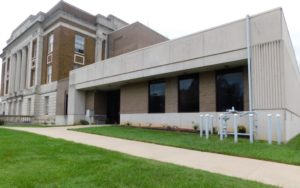
The SPARK recipients are working to complete COVID-19 related projects by the end of 2020, as required by the grant program.
SPARK is responsible for the statewide distribution of the U.S. Coronavirus Relief Fund.
The total amount of grants disbursed in Bourbon County to over 100 entities was $2,835,212.86 on October 21, 2020, according to Bourbon County Economic Director Jody Hoener.
To see the list of recipients:
https://fortscott.biz/news/spark-projects-in-bourbon-county
The Strengthening People and Revitalizing Kansas (SPARK) taskforce is leading the state through recovery from the far-reaching effects of the COVID-19 Pandemic, according to its’ website. https://covid.ks.gov/spark-recovery-office/
“Congress recently passed the new COVID bill that gave an extension to states and cities on spending this money for a year,” said Jody Hoener, the Bourbon County Economic Development Director. “The State of Kansas Recovery Office indicated there will be an extension on our spending plans, but unknown at this time how much of an extension we will receive.”

Locally, SPARK recipients have been balancing and reconciling expenses.
“At the county level we gathered the department heads who have been awarded funds for programs,” Hoener said. ” We went through every single dollar amount from the department and made sure it matched exactly what the County Clerks Office cut for a check and what Greenbush have in their reports. Any errors are caught and quickly corrected. From there, we subtract the total amount spent from the total amount allocated and have a final amount left to spend.”
The other recipients are also required to submit receipts and invoices of SPARK money, she said.
“For the community’s grant/award expenses( they) need to submit receipts and invoices to show dollars spent,” she said. “Greenbush is going through every single receipt and invoice with a fine-tooth comb. It is very time-consuming as you can imagine. From this, we have a very clear understanding of the amount spent and how much is left to be spent.”
The Southeast Kansas Educational Service Center (also known as Greenbush) was hired by the county commission to administer the SPARK distribution and oversight.
“Greenbush was contracted to administer the county SPARK funds,” Hoener said.
|
|
|
|
|
Attention Chamber Members!
Join us this Thursday, December 10th
to celebrate the opening of B-WERC with a
Chamber Coffee & Ribbon Cutting!
17 S. Main St.
upstairs of the Kress Building
Due to the COVID pandemic, temperature readings
will be taken upon entry to the Chamber Coffee
and attendees will be required to wear masks throughout the event. If anyone feels uncomfortable with these requirements, the host asks that
you reconsider attending.
Click here for the Bourbon County Eco. Devo. Facebook page.
Click here for the Kansas Small Business Development Center Facebook page.
Click here for the Southeast KANSASWORKS Facebook page.
B-WERC is a multi-partner collaboration of Bourbon County, Kansas Small Business Development Center, Southeast KANSASWORKS, Fort Scott Community College, Healthy Bourbon County Action Team, Fort Scott Area Chamber of Commerce and BAJA Investments. The center focuses on growing and sustaining businesses, connecting jobs and serving people. Current and aspiring entrepreneurs, employers, and job seekers can make an appointment for services including marketing support, financial review and projections, obtaining capital, establishing an online presence, legalizing childcare providers, unemployment and job seeking assistance.
|
|
OVERLAND PARK, KS – Dec. 1, 2020 – Kansas Gas Service and its parent company ONE Gas are hosting a virtual Inclusion and Diversity career fair to help applicants understand the company and its culture and speak to recruiters about open positions.
From 9:00 a.m. – 5:00 p.m. on December 2, the public will have an opportunity to learn about ONE Gas and its divisions: Kansas Gas Service, Oklahoma Natural Gas and Texas Gas Service.
“We know this has been a trying year for many, and we are pleased to offer this career fair to meet interested applicants,” said Seth Smiley-Humphries, Inclusion and Diversity Director, ONE Gas. “We are committed to hiring a diverse workforce and advancing our inclusive culture. Applicant resumes will be used to fill open positions.”
Interested candidates can visit CareerFair.onegas.com to complete the following steps:
“We want to encourage those seeking jobs to join our virtual career fair,” says Smiley-Humphries. “We are working to find innovative and creative ways to reach potential employees. We know there are great candidates out there and we want to meet them.”
You can also watch our video for more information on the Virtual Job Fair.
For more information on careers at ONE Gas and its distribution companies, visit onegas.jobs and follow us on Facebook, Twitter, LinkedIn and YouTube.
About Kansas Gas Service
Kansas Gas Service delivers safe, clean and reliable natural gas to more than 639,000 customers in 360 communities in Kansas. We are the largest natural gas distributor in the state, in terms of customers.
We are a division of ONE Gas, Inc. (NYSE: OGS), a stand-alone, 100 percent regulated, publicly traded natural gas utility that trades on the New York Stock Exchange under the symbol “OGS.” ONE Gas is included in the S&P MidCap 400 Index, and is one of the largest natural gas utilities in the United States.
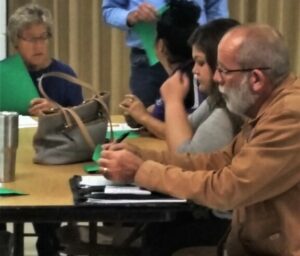
The regularly scheduled Bourbon County Inter-Agency Coalition membership meeting will be this Wednesday, December 2, at noon, in the Community Room at the High Rise Apartments, 315 Scott Avenue.
The agenda is as follows:
Bourbon County Inter-Agency Coalition
General Membership Meeting Agenda
December 2, 2020
“Be sure to wear your mask and social distance as much as possible,” Billie Jo Drake, facilitator of the group said. “Due to the rise in Covid cases in Bourbon County, I certainly understand if you do not wish to attend a face-to-face meeting. If you have any announcements that you need to share, be sure to send them to me prior to 9:00 a.m. on meeting day.”
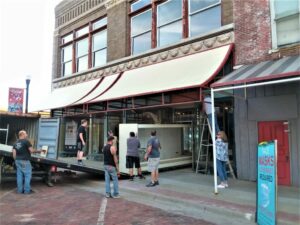
A resource center in the former Kress Building, 17 S. Main is open in downtown Fort Scott.
The center is called the BWERC which stands for Bourbon County Workforce and Entrepreneur Resource Center.
The first floor is currently being prepared to sell groceries, while the second floor is open for business as a multi-partner center to help with COVID-19 related issues.
Downtown Grocery Store
BAJA Investments LLC, Healthy Bourbon County Action Team and a local farm and ranch food cooperative grocery store will be located on the first floor, according to info from Hoener.
BAJA Investments will manage the grocery store that will open sometime in the second half of December 2020, said Bill Michaud, developer for the business. The store is as yet not named, Michaud said on Nov. 3.
The first-floor space will have shelving, coolers and freezers for
local produce and meat.
This will increase access to healthy food, and make more food available for local food assistance programs, Hoener said.
To view a recent story on the grocery store, click below:
New Grocery Store In Downtown Fort Scott Is Coming
Employment Related Services
Through a multi-partner collaboration of Bourbon County government , Pittsburg State University Small Business Development Center www.pittstatesmallbusiness.com, Fort Scott Area Chamber of Commerce http://fortscott.com/, Fort Scott Community College http://www.fortscott.edu/ , Kansas Works http://sekworks.organd BAJA Investments LLC , the hope is to address the urgent COVID-19 related crisis needs in Bourbon County, according to information provided by Jody Hoener, economic director for the county.

The building will be used for distance learning and teleworking and also a place for childcare businesses to become legal and thus help in childcare relief during the pandemic, Hoener noted.

The plan is to give businesses the tools and technical assistance needed for increased online capabilities and the assistance to
obtain the money needed to sustain their business.
There is also unemployment and job-seeking assistance.

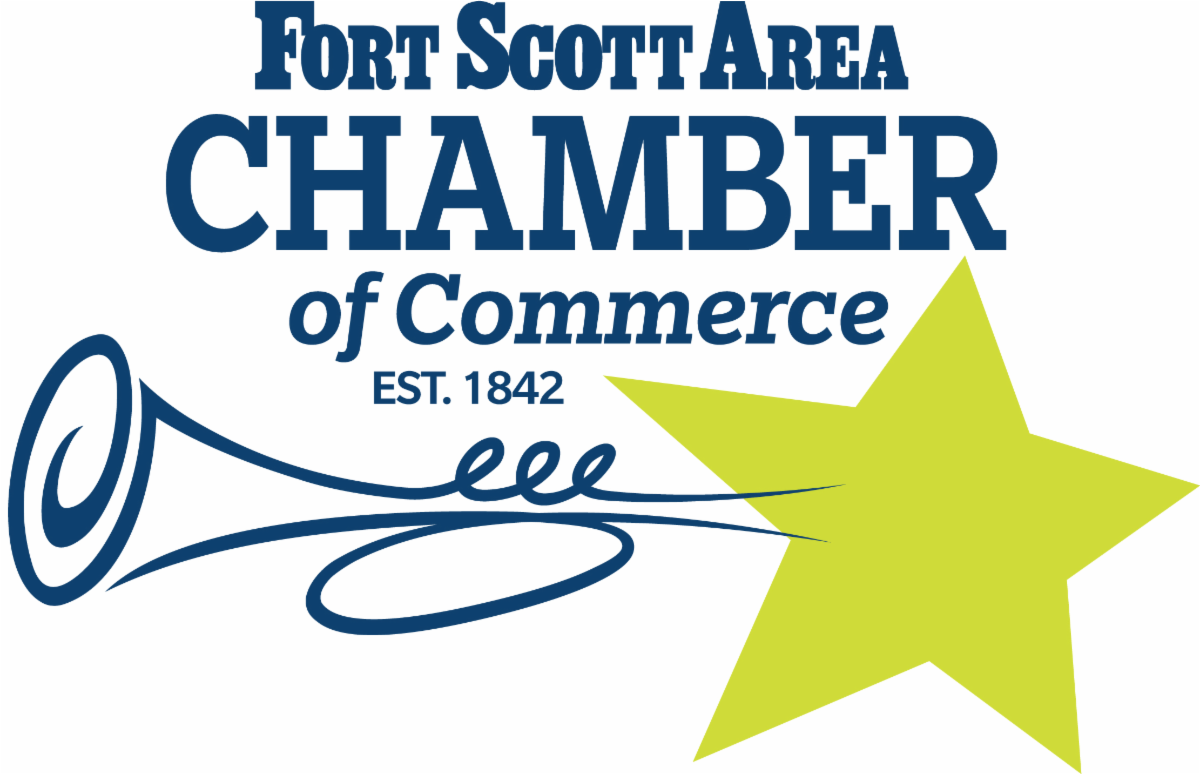
|
|
|
|
|
|
|
|
|
|
|
|
|
|
|
|
|
|
|
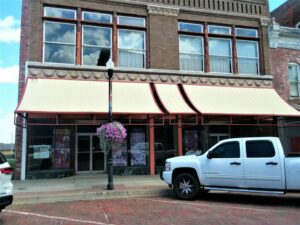
A local business resource center was brought to fruition because of the COVID-19 Pandemic.
“The idea of a business resource center being needed became abundantly clear around March or April,” Jody Hoener, Bourbon County Economic Director said. “Businesses were scrambling, trying to maintain or adapt as required, trying to keep their heads above water, all while attempting to navigate the very complex financial relief offered by the (U.S.)Small Business Administration and others. Just raising awareness of the opportunities and making critical connections to financial institutions for relief became a full-time job, let alone helping owners fill out applications.”

B-WERC Formed
The local program, called the Bourbon County Workforce and Entrepreneur Resource Center (B-WERC), was funded through Kansas’ Strengthening People and Revitalizing Kansas program, which was from money dispursed through the U.S. Cares Act Relief, all of these COVID-19 related measures by the layers of government.
Its purpose is to address current and immediate COVID-19 Pandemic related needs to assist business, encourage economic activity, and address unemployment, according to Hoener.
“I realized that the solution of throwing money at the problem was a very short term fix,” Hoener said. ” Businesses need customers for long term sustainability. The value in an increased online presence was highlighted more than ever during this pandemic. Restaurants were developing online solutions for curbside or delivery services as they were forced to close down. Other retailers were developing online solutions to get their products in the hands of customers. Distance learning, telework, or telehealth became a forced reality.”
Partnerships
“Other partnerships and resources are available through the Fort Scott Area Chamber of Commerce and the Fort Scott Community College,” she said. “The chamber will assist the county in coordinating and promoting. Fort Scott Community College will be offering community classes in B-WERC on social media and other skills. Classes will be hands-on with available laptops for each participant. Telework and distance learning stations will be available for community members who need access to high-speed internet.”

“We will provide 20 qualified businesses free website building with expert assistance in value propositions and messaging critical to branding,” Hoener said.
A partnership with the Small Business Development Center at Pittsburg State University will assist businesses to obtain needed capital and provide business planning assistance for sustainability, Hoener said.

“These incredibly valuable services, in addition to marketing or industry reports, will be readily available,” she said. “This unique assistance will give businesses the needed help to build sustainable models.”
Entrepreneurs
“Many times communities who experience high unemployment rate will in turn see high entrepreneurship rates,” Hoener said. “For those (who are) unemployed and have great ideas to start their own business, this will give them the tools and know-how to move forward successfully.”
Job-Seeking
“A job seeking service will also be available onsite through another partner, KansasWorks, two times a week,” she said.
Childcare, An Important Component
“Childcare centers and daycares have high standards to maintain licensures. One requirement is to meet continuing education requirements. Although continued education for staff is clearly a need, it can create a burden on the facilities in scheduling, costs, and human resources. It is estimated there are approximately 15 illegal daycare providers in our county. Through our partner KansasWorks, B-WERC will be implementing a program that will offer to work with the childcare centers and daycares to meet credentialing requirements of continuing education hours. A program will be implemented to incentivize illegal care to become legal. Childcare is critical to keep our workforce working.” Hoener said.
The B-WERC office will be located on the second floor of the old Kress building at 17 S. Main in downtown Fort Scott. The office is expected to be open Nov. 2, according to Hoener.
The street-level floor of the building will house a grocery store.
The store owner, BAJA Investments, LLC, was also a recipient of the SPARK grant program. To see the story on that, click below:
New Grocery Store In Downtown Fort Scott Is Coming

Bourbon County Website Building and Marketing Grants Program Parameters
The grants will be scored and consequently awarded on a first come first serve basis to those that are eligible, according to Hoener. Applications will remain open until October 31, 2020. The grant will be awarded until 20 qualified businesses have been awarded.
Who Is Eligible
How to Apply
Applications are online at Bourboncountyks.org/spark
Contact info:
Jody Hoener, Economic Development Director
620-215-5725
210 South National
Fort Scott, KS 66701
Once an application is submitted, Fort Scott Area Chamber of Commerce President, Lindsay Madison, and Bourbon County Economic Development Director will review, Hoener said. The application will be scored to determine if the application meets minimum standards to qualify. A follow-up email will be sent to the applicant’s business.
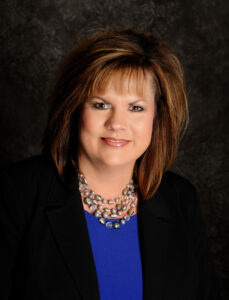
An application will only be considered once it is fully completed with all requested documentation required to support the requested funding.
Parameters
|
Grant Purpose: Website Building and Marketing Services for Business Impacted by the COVID 19 Pandemic |
Points |
|
Current Online Presence |
|
|
Facebook Only |
5 |
|
No Facebook or Website |
5 |
|
A basic, static, webpage only |
5 |
|
A dynamic web page currently exists |
0 |
|
How Would an Online Presence Benefit the Applicant? (Check all that apply) |
|
|
Increased foot traffic |
5 |
|
Encourage tourism activities |
5 |
|
Enhance or enable online scheduling |
5 |
|
Enhance or enable online sales |
5 |
|
Raise awareness of a public need such as food or childcare |
5 |
|
Business Activities and Impact (Check all the Apply) |
|
|
The business is a childcare center or daycare |
5 |
|
Business sales a product that can be legally sold online |
5 |
|
The business provides a service that scheduling can be done online |
5 |
|
The business is located in Downtown Historic District |
5 |
|
The Business encourages overnight stays |
5 |
| ***Minimum score of 5 from each of the three categories is required to be determined eligible |
Process
MANHATTAN, Kansas — The Kansas Department of Agriculture in cooperation with the Kansas State University Land Use Survey Program has published the 2020 Custom Rates Survey, a summary of rates paid for custom work. The survey and report are released on a biennial basis.
The report details the average rates paid by Kansas farmers and ranchers for custom work performed on their operation in 2020. Rates reflect fair market value for custom services either rendered or hired and can be used by Kansas farmers and ranchers as they make decisions about rate charges.
“We view the Kansas Custom Rates Survey as a very valuable tool for farmers, ranchers and agribusinesses to access as they enter into new and negotiate existing contracts and agriculture service arrangements,” said Secretary Mike Beam. “KDA works to provide support and assistance to help make Kansas agriculture more successful, and we are pleased to partner with K-State to publish this biennial survey.”
Last published in 2018, the new report indicates average custom rates have increased; it also includes historical tables and graphs which show results from previous surveys. Prices in the report should not be regarded as official or established rates.
For more complete information and access to the report, please visit the KDA website at www.agriculture.ks.gov/AgStatistics or contact KDA economist Peter Oppelt at 785-564-6726 or [email protected].
Governor Laura Kelly Announces Department of Commerce’s Third KANSASWORKS Statewide Virtual Job Fair
TOPEKA – Governor Laura Kelly today announced that the third KANSASWORKS Statewide Virtual Job Fair will be held today, Tuesday, July 28, through Thursday, July 30.
“We need to maintain a strong, healthy workforce in our state, and getting Kansans back to work safely is one of my top priorities,” Governor Laura Kelly said. “The KANSASWORKS virtual job fair has proven to be a creative and effective way to connect Kansans with jobs opportunities, and will be important as our economy recovers from the challenges of COVID-19.”
The virtual fair will allow job seekers to easily live chat with employers from across the state through computers and mobile devices. This is the third KANSASWORKS virtual job fair so far in 2020, with four more planned later this year.
The Department of Commerce moved its statewide job fairs online this year to eliminate the public health risks associated with mass gatherings, while continuing to provide job opportunities for job seekers and maintain a ready workforce for Kansas businesses.
“Increasing employment opportunities and keeping our economy strong is a top priority of the Department of Commerce,” Secretary of Commerce David Toland said. “The need for both businesses and job seekers in our state is significant, but health and safety concerns mean it’s still not safe to hold in-person job fairs. The Virtual Statewide Job Fair system is a perfect example of how our KANSASWORKS team is continuing to provide Kansans access to employers in a way that protects everyone involved.”
This year’s second virtual fair in June was a great success, with approximately 165 employers and 1,497 jobseekers participating. Employers represented included:
As concerns for the health and safety of Kansans remain high due to COVID-19, the Department of Commerce will maintain the virtual job fair system for the remainder of 2020. Future statewide events are scheduled for:
As these dates get closer, updates will be provided with employer and jobseeker registration links for each individual virtual fair.